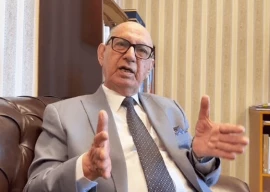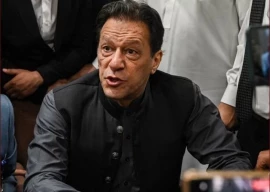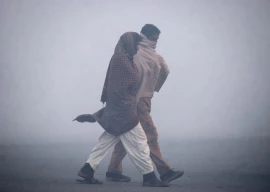
The Indian Supreme Court on Wednesday upheld the death sentence handed down to Mohammed Ajmal Kasab, the lone surviving gunman involved in the 2008 Mumbai attacks in which 166 people were killed.
The court also observed that it was “crystal clear that the conspiracy was hatched by Pakistanis”.
The court rejected a plea filed by Kasab – a Pakistani citizen who was one of the 10 gunmen who laid siege to different landmarks of India’s financial capital for nearly three days – to commute the death sentence handed to him by the Bombay High Court, to life imprisonment — citing an unfair trial. Now the only course left for Kasab is to appeal to the Indian president for mercy.
However, Home Minister Sushil Kumar Shinde says if Kasab files a mercy plea, “we will ensure that it is disposed of in minimum time”.
President Pranab Mukherjee has nearly 20 mercy petitions pending before him, among them that of Afzal Guru, who was convicted in the 2001 Indian parliament attack, and the mercy petition of Balwant Singh Rajoana, the convicted killer of India’s former Punjab chief minister Beant Singh.
According to rules, Kasab’s petition, if filed, will have to wait its turn. But the president can fast-track a particular case provided he is convinced of its extraordinary nature.
Confirming the death sentence, the top court observed that the foremost offence that Kasab was charged with was waging war against India and “we are left with no option, but to uphold the sentence.”
A bench comprising Justice Aftab Alam and Justice C K Prasad rejected 25-year-old Kasab’s contention that he was not given a free and fair trial. The bench observed that the government’s failure to provide him with a lawyer at the pre-trial stage did not vitiate court proceedings against him.
Senior advocate Raju Ramachandran, who defended Ajmal in the apex court as amicus curiae, said he “bows down” to the ruling.
“I bow to the verdict of the court. As amicus curiae, I was given an opportunity to advance every convincing arguments, I could,” said Ramachandran, who was appointed by the apex court to defend the accused.
Meanwhile, Ujjwal Nikam, who led the case against Kasab throughout the trial, called on the death sentence to be carried out “as soon as possible so that it gives a strong signal to terrorists.”
Speaking at a conference in Tehran, Foreign Minister SM Krishna reacted to the court’s decision by saying that he was “sure Pakistan will not fail to take note of it”.
Kasab was found guilty on charges including waging war, murder and terrorist acts, and was sentenced to death in May 2010.
India blames the Pakistan-based Lashkar-e-Taiba militant organisation for training, equipping and financing the gunmen with support from “elements” in the Pakistan military. Islamabad, however, denies the charge.
(WITH ADDITIONAL INPUT FROM AFP)
Published in The Express Tribune, August 30th, 2012.
COMMENTS (7)
Comments are moderated and generally will be posted if they are on-topic and not abusive.
For more information, please see our Comments FAQ

1726117332-0/Megan-Thee-Stallion-(1)1726117332-0-165x106.webp)





















Is it justice that the government of India has wasted crores of tax payer money to conduct the dance of justice for someone who was caught red handed perpetrating a crime of monstrous proportions ??
Is it fair to the tax payer than a non-citizen terrorist scum is the recipient of so much time and money by the government and the courts ?
It would have been cheaper to give Kasab to the mob to be lynched to death instead of spending 120 crores to conduct his trail.
I just hope they behead him and put his head on a stick near Wagha border.
The death sentence awarded and upheld by the Supreme Court of India to Ajmal Kasab the terrorist responsible for the attack on Mumbai on 26/11/2008 is indeed the most appropriate punishment for the act committed against humanity. This is the rarest of rare crime for which death sentence alone is the only punishment. Ajmal Kasab by his act of terrorism has not only hurt India and the Indian sentiments but, has also brought a bad name for his own country i.e. Pakistan. The people of Pakistan in my view are equally wanting peace and want to refrain from activities that are detrimental to peace and harmony as much as the people of India want. There are and will be disagreements with regard to perception and that is a different matter all together. The sentence awarded to this terrorist should not be perceived by the citizens of India as any judicial victory or a lesson having been taught to their neighbour. For, the time has come when India and Pakistan must accept peaceful co-existence in 'letter and spirit' as their goal. Expecting this change of perception to be overnight is certainly not possible but sincere efforts have to be made in this direction. Non-interference in each other's internal affairs must be ensured and respected. At present there is an air of trust and amity between the two neighbours that is growing and this is indeed a development that should be welcomed by one and all. The blame game must stop from both sides and queries like 'Why does not Pakistan cooperate on such and such matter with India or why does not India do the needful?' should now be stopped or refrained from. Ajmal Kasab is an offender who needs to be punished and that is for sure but, let not this issue be made a subject with various other riders attached to it. Such acts as those committed by Ajmal Kasab and his group of terrorist are detrimental to humanity and to cordial relationships among nations hence should never be encouraged. The Republic of India and The Islamic Republic of Pakistan as nation have suffered because of terrorism and religious fundamentalism hence we take lessons from history and decide to change ourselves and our perceptions.
India, and their bollywood styled politics.
In principle I am against death penalty in all cases. However, if the death penalty is ever justified this may be one such case. Ajmal had a long trial and given the right to appeal to the highest court of the country, in the end all one can say is "justice served".
This shows that even beasts have rights to a due process in India. Only if Pakistan had given Kasab a lawyer this would have come full circle and nailed Pakistan's involvement even faster.
The next in line is Abu Jindal, the guy Saudi Arabia returned to India and who not only had a Pakistani passport, but also various kinds of Pakistani identity cards.
For all those who deny Mumbai carnage, remember Karma visiting you every other day in Pakistan.
Welcome to the Islamic republic of India.
Kasab will be given clemency to appease the Muslims. The same muslims who are causing trouble in every part of the country.
I am waiting the comments from Kaalchakra and Lala Gee?